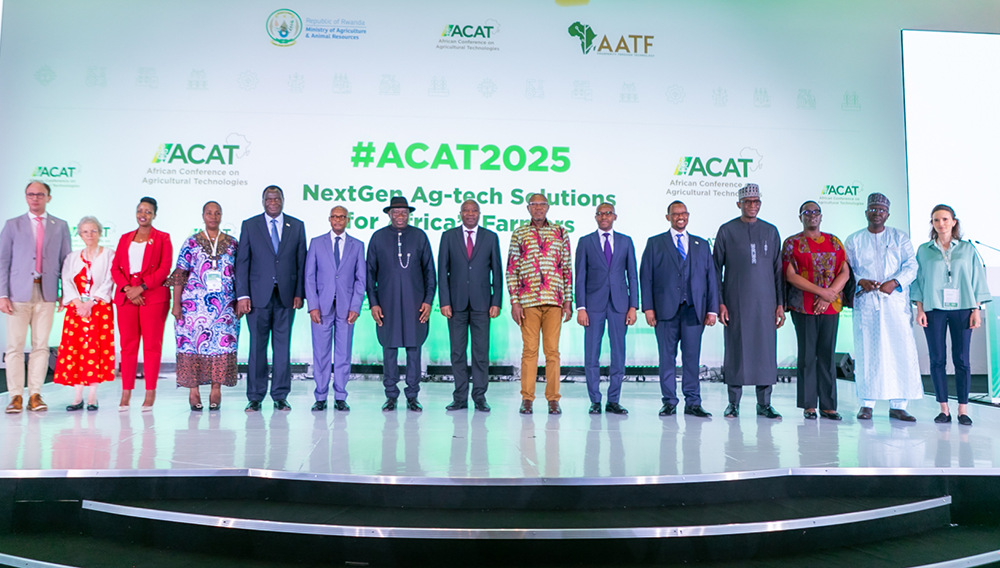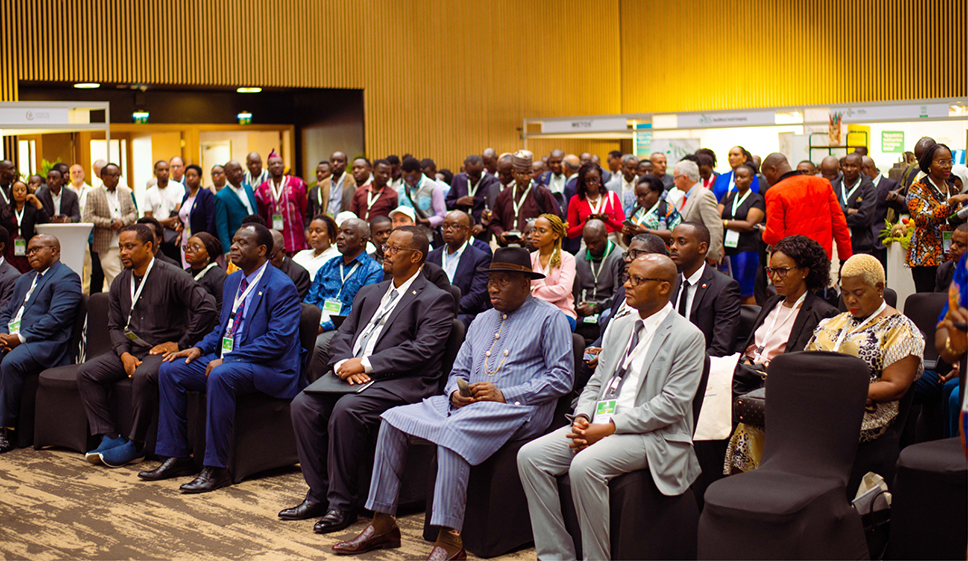
Our team from the Natural Resources Institute recently returned from an incredible four days at ACAT 2025 in Kigali, where more than 800 delegates gathered to explore next-generation agricultural technologies under the theme "NextGen Ag-Tech Solutions for Africa's Farmers." As representatives of the Medway Food Innovation Centre, we found deep resonance between the conference discussions and our own mission to drive food innovation and support emerging entrepreneurs.
Empowering Young Agri-Innovators
One of the most inspiring aspects of ACAT 2025 was the dedicated focus on empowering young agri-innovators through mentorship, branding, and partnerships. The sessions provided platforms for ideas and strategic deal matching - something that aligns perfectly with our Food Accelerator Programme here at the Medway campus.
Watching young entrepreneurs pitch their innovations to high-level audiences, including H.E. Prime Minister Édouard Ngirente of Rwanda and former Nigerian President Dr. Goodluck Ebele Jonathan, reminded us of the transformative potential when we invest in the next generation of food innovators. As Dr. Canisius Kanangire from AATF noted, "young people must develop complementary skills like effective communication to strengthen their pitches" - a principle we embed throughout our accelerator programming.
Financing Innovation: Lessons for Food Entrepreneurs
The panel on "Financing AgTech Solutions: Aligning Capital, Risk, and Innovation" provided valuable insights that directly apply to the entrepreneurs we support. Hannington Namara from Equity Bank Rwanda's commitment to allocate 30% of their loan portfolio to agriculture demonstrated the growing recognition of agriculture as a viable investment sector.
The key takeaway resonated strongly with our approach: "Innovation must scale through farmers, not around them." This farmer-centred philosophy mirrors our emphasis on developing market-relevant solutions that address real-world challenges rather than technology for technology's sake.

From Pilot to Scale: Commercialising Innovation
The sessions on "Last Mile Delivery" and "Beyond the Pilot, Scaling Ag-Tech Solutions" were particularly relevant to our work with food entrepreneurs transitioning from concept to market. The discussions emphasised that successful scaling requires:
- Inclusive, farmer-centred approaches
- Stronger public-private partnerships
- Data-driven innovations
- Multi-sector collaboration
These principles align with our support model, where we help innovators understand not just how to develop products, but how to ensure they reach and benefit end users effectively.
Building Collaborative Partnerships
The emphasis on forging lasting, impact-driven collaborations throughout ACAT 2025 reinforced the importance of our own partnership approach. As panellists noted, success requires aligning visions across all parties and bridging gaps between researchers and communicators - ensuring research reaches the right audience and gains acceptance.
This collaborative mindset is embedded in our work with entrepreneurs, connecting them not just with funding but with mentors, industry partners, and market opportunities that create sustainable pathways to success.

Looking Forward: Applying ACAT Insights
Our experience at ACAT 2025 has reinforced several key principles that will shape our continued work:
- Farmer-first innovation: Whether in Africa or the UK, successful food innovations must address real user needs
- Youth empowerment: Investing in young innovators through mentorship and skill development is crucial for sector transformation
- Collaborative ecosystems: No single organization can drive systemic change - partnerships are essential
- Technology integration: Digital solutions offer tremendous potential, but must be accessible and relevant to end users
As we continue to support food entrepreneurs through our accelerator programmes and innovation facilities, the insights from ACAT 2025 remind us of the global nature of food challenges and the universal principles that drive successful innovation.
The conference's call for "coherence and courage to act - across ministries, regions, and sectors" resonates strongly with our mission to break down silos and create supportive ecosystems for food innovation. Whether supporting entrepreneurs in Medway or collaborating with partners across Africa, the work of transforming food systems requires exactly this kind of coordinated, collaborative approach.
For more information about NRI's work in agricultural development and food innovation, or to learn about our Food Accelerator Programme, visit our programmes page or contact our team directly.
